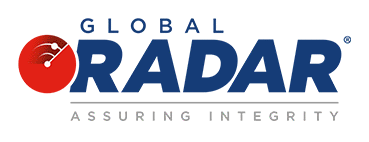While the end of the calendar year generally translates to slowed production across the financial sector and beyond, it appears international regulators are staying rather busy these days. Last week, several domestic and international regulators and government agencies kicked off the holiday season by levying a number of financial penalties against firms for AML-related shortcomings and fraud, amongst other wrongdoing.
Paragon Systems Forced to Pay Up for Fraudulent Kickback Scheme
Virginia-based private security firm and federal contractor Paragon Systems agreed to pay over $52 million to settle charges with the United States Justice Department last week to resolve allegations that the firm violated the U.S. False Claims Act as well as the Anti-Kickback Act. Reports indicate that multiple former corporate executives of Paragon – one of the federal government’s largest providers of specialized security, fire and emergency response and mission support services – conspired to win Department of Homeland Security (DHS) contracts by creating fraudulent small business front companies to obtain previously set-aside contracts. The aforementioned group of bad actors ironically also includes the firm’s compliance manager, along with company president, and vice presidents of business development and operations, respectively.
All told, these executives targeted contracts that the DHS had reserved for Woman-Owned Small Businesses (WOSBs), Service-Disabled Veteran Owned Small Businesses (SDVOSBs) and other small businesses. The crooked employees allegedly directed female relatives and friends to pose as “figurehead owners of purported small businesses” to win these contracts, which then allowed Paragon to provide additional security services at federal buildings.5 It was later discovered that the Paragon-controlled companies then sub-contracted substantially all of the work under the set-aside contracts to Paragon. Further compounding matters, the purported small businesses then turned around and paid back large sums of money (over $11 million spread out over 300+ individual payments) to the former Paragon braintrust while attempting to conceal these transactions by filing them as “consulting payments” that were ultimately being made to shell companies created by the former executives.5
“This settlement is the largest civil recovery in over a decade by the Department of Homeland Security Office of Inspector General (DHS-OIG),” DHS Inspector General Joseph V. Cuffari said. “The settlement sends a clear message that the federal government will continue to investigate and prosecute fraud, waste and abuse to protect small businesses owned by service-disabled veterans and other socially and economically disadvantaged individuals. I am grateful for the continued partnership with the Department of Justice and for the whistleblower who initiated the complaint.”1
One of the purported small businesses, Athena Services International LLC (ASI) and its joint venture with Paragon, Athena Joint Venture Services LLC (AJVS), along with their owner, Alisa Silverman, have also collectively agreed to pay more than $1.6 million to resolve their liability in connection with the alleged small business contracting fraud scheme.5
Metro Bank Fined for Anti-Money Laundering Failures
Across the pond, the United Kingdom’s Metro Bank was hit with a £16m ($20.47m) fine by the Financial Conduct Authority (FCA) last week for carrying on an inadequate anti-money laundering program over a series of several years. Similar to current United States standards, financial institutions are required by the FCA to conduct anti-money laundering (AML) monitoring as a way to both detect and subsequently hinder criminal activity occurring within banks small and large. The FCA claims that between June 2016 and December of 2020, Metro Bank failed to sufficiently monitor transactions and adequately assess risk during the customer onboarding process and beyond. Their transgressions centered on an unprecedented error in the bank’s automated transaction monitoring system that occurred in 2016 which effectively allowed transactions taking place on the same day an account was opened, and any further transactions until said account record was updated, to mot be monitored.2 Investigators fear that the years’ worth of unmonitored transactions could have allowed for millions of pounds worth of suspicious funds to pass through the firm’s doors unchecked, causing a catastrophic impact on international anti-money laundering efforts.
What made Metro truly negligent is that junior staff reportedly voiced concerns about this problem as far back as 2017 and company brass still failed to properly address the issue. The FCA found that while a partial fix had been put in place in July of 2019, Metro Bank continued to operate without a mechanism to consistently check that all relevant transactions were being fed into the monitoring system until December of 2020.2 Unfortunately for Metro, the FCA decided that taking four years to mend an issue of this significance was just cause for a major penalty. FCA enforcement and market oversight joint executive director Therese Chambers said: “Metro’s failings risked a gap being left in our defense against the criminal misuse of our financial system. Those failings went on for too long.”3
SEC Charges Invesco for Fraudulently Misleading Investors
Rounding out last week’s developments was prominent American investment management company Invesco finding itself in hot water with the U.S. Securities and Exchange Committee (SEC) regarding the hot-button topic of environmental, social, and governance (ESG). The concept of ESG itself – which acts as a way both individual investors, as well as firms themselves, can evaluate the health and stability of a business beyond strictly financial performance – has become highly publicized and controversial in some circles. In recent years, investors have become more aware of the importance of ESG criteria in their investment decisions, often using ESG factors as the primary basis behind investing in a respective company altogether. Skeptics have claimed however that the entire concept is over-estimated and serves to benefit financial giants such as BlackRock and other large-scale investment companies seeking to further their global presence while gaining additional investment.
In an effort to entice potential consumers seeking sustainability through their respective investments, the SEC alleges that Invesco made misleading statements to both established and prospective clients about what percentage of assets under management (AUM) were devoted to ESG factors. According to the SEC Order, beginning in late 2019, Invesco identified the use of ESG considerations across its global investment platform as a commercial imperative and accelerated its “ESG integration” efforts4 – apparently at the expense of their moral compass. In 2020, the company claimed that over 94% of their AUM was integrated with ESG, a statement ultimately proven untrue by the regulator. The false claims continued on through 2022 however, with the SEC investigation ultimately finding that Invesco did not have a legitimate method, nor a comprehensive set of written policies and procedures, to measure what percentage of their AUM involved ESG. Based on the findings, the SEC hit Invesco with a cease-and-desist from committing future violations of their Acts and Rules before issuing a $17.5 million penalty to settle the related charges.4
Citations
- Andrews, Kate. “Paragon Systems Fined $52M for Alleged Fraud.” Virginia Business, 15 Nov. 2024.
- “FCA Fines Metro Bank £16m for Financial Crime Failings.” FCA, 12 Nov. 2024.
- GlobalData. “UK’s Metro Bank Fined $20M for AML Lapses.” Yahoo! Finance, Yahoo!, 13 Nov. 2024.
- Halper, Jason, Rebecca Fike, et al. “SEC Charges Invesco Advisers for Making Misleading ESG Claims: Insights: Vinson & Elkins LLP.” Vinson & Elkins, 21 Nov. 2024.
- “Paragon Systems Agrees to Pay $52M to Resolve False Claims Act Allegations Concerning Fraudulently Obtained Small Business Contracts and Kickbacks.” Office of Public Affairs, United States Department of Justice, 12 Nov. 2024.

